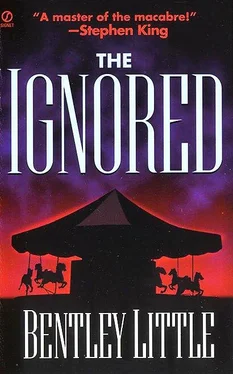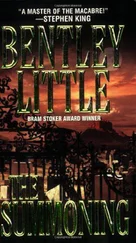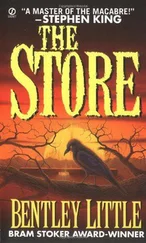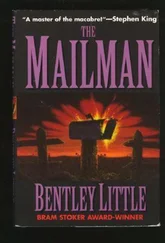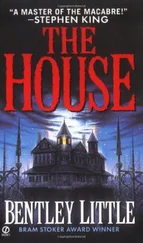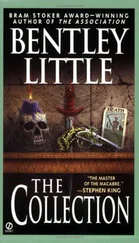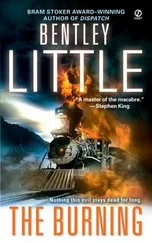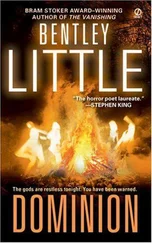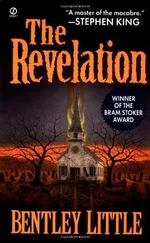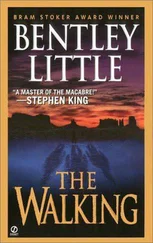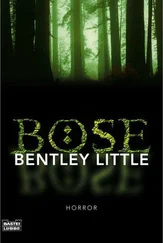Bentley Little - The Ignored
Здесь есть возможность читать онлайн «Bentley Little - The Ignored» весь текст электронной книги совершенно бесплатно (целиком полную версию без сокращений). В некоторых случаях можно слушать аудио, скачать через торрент в формате fb2 и присутствует краткое содержание. Год выпуска: 1997, ISBN: 1997, Издательство: Signet, Жанр: Ужасы и Мистика, на английском языке. Описание произведения, (предисловие) а так же отзывы посетителей доступны на портале библиотеки ЛибКат.
- Название:The Ignored
- Автор:
- Издательство:Signet
- Жанр:
- Год:1997
- ISBN:0451192583
- Рейтинг книги:3 / 5. Голосов: 1
-
Избранное:Добавить в избранное
- Отзывы:
-
Ваша оценка:
- 60
- 1
- 2
- 3
- 4
- 5
The Ignored: краткое содержание, описание и аннотация
Предлагаем к чтению аннотацию, описание, краткое содержание или предисловие (зависит от того, что написал сам автор книги «The Ignored»). Если вы не нашли необходимую информацию о книге — напишите в комментариях, мы постараемся отыскать её.
The Ignored — читать онлайн бесплатно полную книгу (весь текст) целиком
Ниже представлен текст книги, разбитый по страницам. Система сохранения места последней прочитанной страницы, позволяет с удобством читать онлайн бесплатно книгу «The Ignored», без необходимости каждый раз заново искать на чём Вы остановились. Поставьте закладку, и сможете в любой момент перейти на страницу, на которой закончили чтение.
Интервал:
Закладка:
Bentley Little
The Ignored
Thanks, as always, to my friends and family.
Special thanks to the employees of the City of Costa Mesa with whom I worked from 1987 to 1995: both the friendly intelligent competent professionals I liked, and the small-minded backbiting bureaucratic assholes I hated.
PART ONE
Ordinary Man
One
On the day I got the job, we celebrated.
I’d been out of school for nearly four months, and I’d almost given up hope of ever finding employment. I’d graduated from UC Brea in December with a BA in American Studies — not the world’s most practical major — and I’d been looking for a job ever since. I’d been told more than once by my professors and my advisor that American Studies was ideal for someone attempting to start a career, that the “interdisciplinary course work” would make me more desirable to prospective employers and more valuable in today’s job market than someone with more narrow, specialized knowledge.
That was bullshit.
I’m sure the professors at UC Brea didn’t intentionally try to sabotage my life. I’m sure they really did think that a degree in American Studies was as valuable to people in the outside world as it was to them. But the end result of my misdirected education was that no one wanted to hire me. On Donahue and Oprah , representatives from major corporations said in panel discussions that they were looking for well-rounded individuals, not just business majors but liberal arts majors. But the PR they fed to the public through the media and what really went on were two different things. Business majors were being hired right and left — and I was still working part-time at Sears, selling men’s clothing.
It was my own fault, really. I’d never known what I wanted to do with my life or how I wanted to earn my living. After finishing my General Ed requirements, I’d drifted into American Studies because the department’s courses that semester had sounded interesting and fit easily into my work schedule at Sears. I gave no thought whatsoever to my career, to my future, to what I wanted to do after I graduated. I had no goals, no plans; I just sort of took things as they came, and before I knew it, I was out.
Maybe some of that came across in my job interviews. Maybe that’s why I hadn’t been hired yet.
It certainly didn’t show up on my resume, which was professionally typeset and, if I do say so myself, damned impressive.
I’d seen the notice for this job opening at the Buena Park Public Library. There was a big binder that contained flyers and notices for all sorts of government agencies, public institutions, and private corporations, and I’d been checking it out each Monday, after notices for the coming week were added. The jobs listed at the library seemed to be of a higher quality than those in the want ads of the Register or the Los Angeles Times , and anything was better than the so-called Career Center at UC Brea.
This position, listed under the heading “Business and Corporations,” was for some sort of technical writer, and the requirements looked promisingly nonspecific. No previous experience was necessary, and the only hard-and-fast rule seemed to be that all applicants have a bachelor’s degree in Business, Computer Science, English, or Liberal Arts.
American Studies was nearly Liberal Arts, so I wrote down the name of the company and the address, and after driving back to the apartment and leaving a note for Jane on the refrigerator, I drove out to Irvine.
The corporation was a huge faceless building in a block of huge faceless buildings. I walked through the massive lobby and, following the directions of a security guard at the front desk, to the elevator that led to the personnel department. There I was given a form, a clipboard, and a pen, and I sat down in a comfortably padded office chair to fill out my application. I had already decided in my own mind that I would not get this job, but I dutifully filled out the entire application and turned it in.
A week later, I received a notice in the mail informing me that I had been scheduled for an interview on the coming Wednesday at one-thirty.
I didn’t want to go, and I told Jane I didn’t want to go, but Wednesday morning found me calling in sick to Sears and ironing my one white shirt on a towel on the kitchen table.
I arrived for the interview a half hour early, and after filling out another form, I was given a printed description of the position and led by a personnel assistant down a hall to the conference room where interviews were being conducted. “There’s one applicant ahead of you,” the assistant told me, nodding toward a closed door. “Have a seat, and they’ll be with you shortly.”
I waited on a small plastic chair outside the door. I had been advised by the people at the Career Center to always plan ahead what I was going to say in a job interview, to think of all the questions that I might be asked and come up with a prepared answer for each, but hard as I tried, I could think of nothing that might be asked of me. I leaned back, close to the door, and listened carefully, trying to hear what was being asked of my rival inside the room so I could learn from his mistakes. But the door was soundproof and kept in all noise.
So much for planning my answers.
I looked around the hallway. It was nice. Wide, spacious, with lots of light. The tan carpet was clean, the white walls recently painted. A pleasant working environment. A young, well-dressed woman carrying a sheaf of papers in her hand emerged from a doorway down the hall, passing by me without a glance.
I was nervous, and I could feel sweat trickling in twin rivulets from under my arms down the sides of my body. Thank God I’d worn a suit with a jacket. I glanced down at the paper in my hand. The description of the job’s educational requirements was clear — I didn’t have to worry about that — but the actual responsibilities of the position were vague, couched in indecipherable bureaucratese, and I realized that I did not really know anything about the job for which I was applying.
The door opened, and a handsome, business-suited man several years my senior strode out. He had a professional demeanor, his hair was short and neatly trimmed, and he carried in his hand a leather portfolio. This was who I was competing against? I suddenly felt ill-prepared, shabby in my appearance and amateurish in my attitude, and I knew with unarguable certainty that I was not going to get the job.
“Mr. Jones?”
I looked up as my name was called.
An older Asian woman was holding the door open. “Would you step in, please?”
I stood, nodded, and followed her into the conference room. She motioned toward three men seated at a long table in the front of the room, and promptly sat down on a chair next to the door.
I walked forward. The men looked forbidding. All three were wearing nearly identical gray suits, and none of them were smiling. The one on the right was the oldest, a heavyset gray-haired man with a severely lined face and thick black-framed glasses, but it was the youngest man, in the center, who appeared to be in charge of the proceedings. He had a pen in his hand, and on the table before him was a stack of applications identical to the one I had submitted. The short man on the left seemed to take no notice of my entrance and was staring disinterestedly out the window of the room.
The middle man stood, smiled, and offered me his hand, which I shook. “Bob?” he said.
I nodded.
“Glad to meet you, I’m Tom Rogers.” He motioned for me to sit in the lone chair in front of the table and sat down himself.
I felt a little better. Despite the formality of his attire, Rogers had about him a distinctly informal air, a casually relaxed way of speaking and moving that immediately put me at ease. He was also not that much older than me, and I figured that might be a point in my favor.
Читать дальшеИнтервал:
Закладка:
Похожие книги на «The Ignored»
Представляем Вашему вниманию похожие книги на «The Ignored» списком для выбора. Мы отобрали схожую по названию и смыслу литературу в надежде предоставить читателям больше вариантов отыскать новые, интересные, ещё непрочитанные произведения.
Обсуждение, отзывы о книге «The Ignored» и просто собственные мнения читателей. Оставьте ваши комментарии, напишите, что Вы думаете о произведении, его смысле или главных героях. Укажите что конкретно понравилось, а что нет, и почему Вы так считаете.
